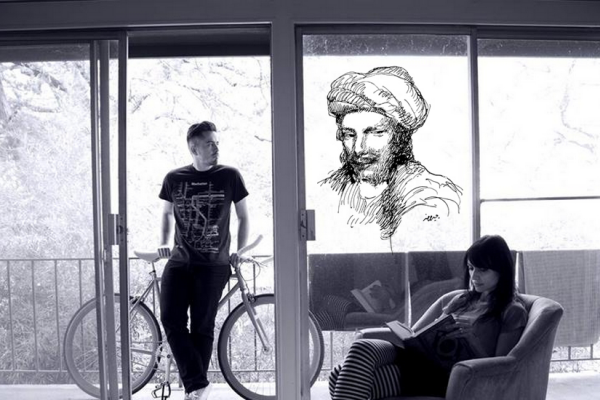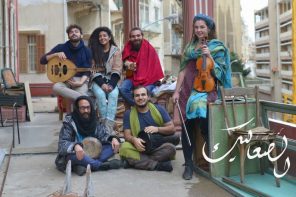I always wonder about the trials that a poet must pass through before they become a poet. Is a poet born after only a single trial? Or does a poet confront trial every time they reach for a pen? I’m familiar with narratives that tell of mastering a poetic tradition, followed by a radical break, after which the poet is awarded a license to compose. However, I’m more convinced that other trials—the kinds we try on and the kinds that try us—are what really test the unification between the poet and the raw poetic matter that floats in the universe.
Before he was allowed to compose lyric and song, Abu Nuwas, the 9th century master poet of drink and debauchery, had to get permission first. Back then, to become a poet in Baghdad, you had to memorize a thousand passages of meter to prove your feat to a teacher, the facilitator of trials. Under these conditions, Abu Nuwas made his request, left the City of Peace, and went into seclusion to learn the passages by heart. However, when he returned a year later, and performed every line of poetry impeccably, his request to compose was denied. It turned out that unless he could also forget, down to the last line, all he had committed to memory he wouldn’t be allowed to compose. Memorizing a thousand passages of poetry was one thing, but forgetting them was something else. Nonetheless, he retreated again into isolation to erase the passages from his memory. A year later, Abu Nuwas returned and performed (I don’t know how exactly) the absence of those thousand passages, after which he proclaimed, “I’ve forgotten them so thoroughly that it’s as if I never memorized anything at all.” His teacher then turned to him and responded, “Now go compose!”[1]
Since I arrived in late August, the move from Los Angeles to Austin has shown me how each city possesses a distinct poetic spirit. And since my arrival, I’ve been keen on meeting the spirits of Austin’s poets. Tuesday nights, I watch poets spill their blood from the stage at the Spider House. On weekends, I see musicians, performers, and bands burn 6th Street to life, east and west. And once, while I was up north, I listened to Austin legends play at Ginny’s Little Longhorn. But I was in my apartment, visiting a Kickstarter page, when I learned about Scott Zuniga. In a two minute and forty-one second video Scott told me his story: the bitter darkness he had tasted after his hard drive crashed erasing his entire repertoire of songs, demos, and ideas from the hard drive’s memory. For two slow motioned years, Scott didn’t touch his guitar. It wasn’t until he spent some time in Scotland, his mother’s home, did he emerge from that dark corridor and pass through the threshold at the other end. Creative inspiration returned to Scott in a dream—it happened when he was swimming with the Loch Ness monster while the melody of Isla’s Promise resonated in the distance. When the video ended I thought about the lost gigabytes of poetry, the two years in seclusion, and the trial of Abu Nuwas.
A week ago, I attended one of Scott’s shows. While I listened to Scott’s own poetic blood spill into the microphone, I became aware of those two years, the time between the crash and the dream, that poured from the speakers. I listened to the games of remembering that Scott played—believing and wishing his songs back. And I also heard the ones about forgetting—breaking his machines and letting go of everything. I went home with a new way to understand the trials of the poet. Echoing the tradition of the Abbasids, Scott had to learn all the songs and then forget them. He had to save them on a hard drive and then delete them all. But Scott didn’t lose them, because his fans hear them every time they play his music. Imbedded in his melodies and lyrics are the witnesses to his trials: the remembering, the forgetting, and the redemption that rings out after Isla’s Promise; “Now, Scott, go compose!”
[1] Kilito, Abdelfattah, The Author and His Doubles, trans. Michael Cooperson, 14.









Très bien pensé et bien écrit. Love me some Abu Nuwas! Merci Rawad.
Beautiful!